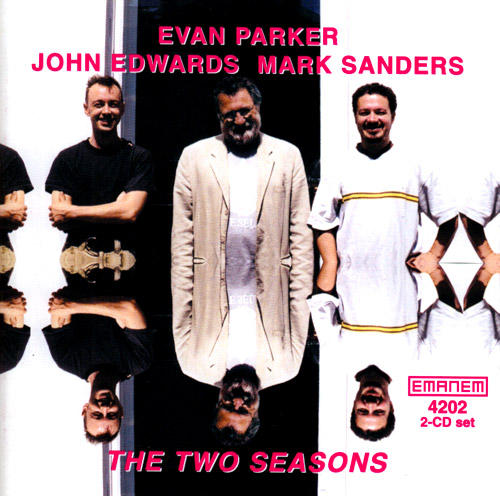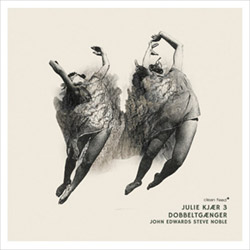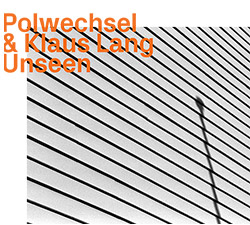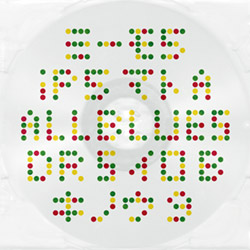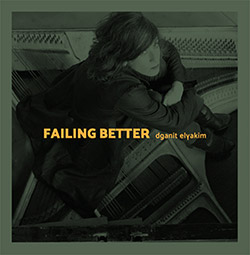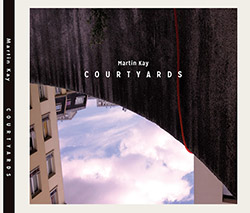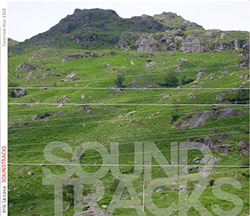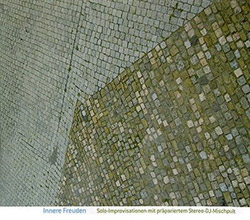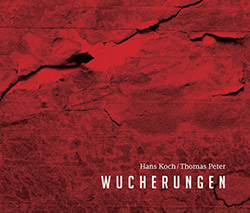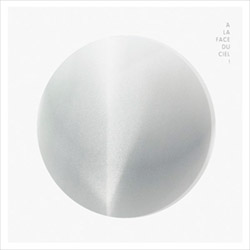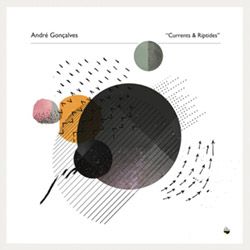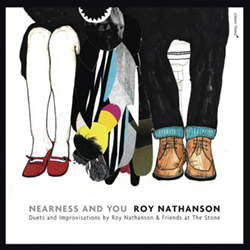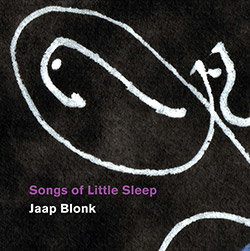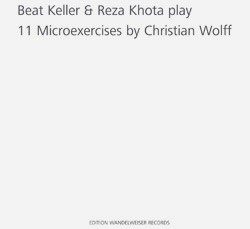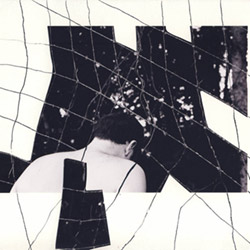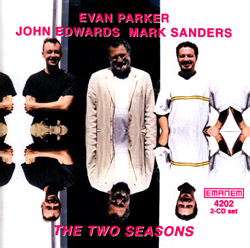
Two very live performances - one from the winter and one from the summer - recorded at the Vortex in London by this finely interlocked saxophone / double bass / percussion trio of London improvisers Evan Parker, John Edwards, and Mark Sanders.
Out of Stock
Quantity in Basket: None
Log In to use our Wish List
Shipping Weight: 5.00 units
Sample The Album:
Evan Parker-tenor saxophone, soprano saxophone
John Edwards-amplified doublebass
Mark Sanders-percussion
Click an artist name above to see in-stock items for that artist.
UPC: 5030243420223
Label: Emanem
Catalog ID: 4202
Squidco Product Code: 18439
Format: 2 CDs
Condition: New
Released: 2000
Country: Great Britain
Packaging: Jewel Case
1-1 - 1-6 recorded on 1999 February 15.
2-1 - 2-5 recorded on 1999 July 28.
Recorded at The Vortex.
"Some believe that Evan Parker is at his very best when playing in a trio format. It tends to be true. His trio with Barry Guy and Paul Lytton is nothing less than impressive. The Two Seasons documents another of his sax/bass/drums trios, this one with John Edwards and Mark Sanders.
This is a two-CD set with each disc presenting an almost integral concert (editing had to be made in order to comply with the limitations of the CD medium) "Winter" was recorded on February 15, 1999, and "Summer" on July 28 of the same year. Each of these performances was delivered at the Vortex in London and comprised two 40-minutes sets of continuous free improvising (indexed on the records following the evolution of the improvisations). If Parker's tenor sax takes center stage (his soprano playing is heard for only 20 minutes), Edwards and Sanders are not confined to accompaniment.
Both have a chance to shine, whether it is in an official solo in February or in a trio context in July. But there are times (in "Summer," especially) where one gets the feeling the musicians are going through the motions. Is it because the vocabulary heard here is less exuberant than on At the Vortex (with Parker, Lytton, and Guy)? One thing is sure, there is less fire, fewer sparks in these recordings than on other recent releases from the saxophone legend. It doesn't make it a bad selection, though! Parker's energy level is still stunning. The Two Seasons will not be remembered as a defining moment in his career, but it remains a record worthy of his talent, a very good example of the art of this free jazz luminary and a nice addition to his trio production."-Francois Couture, allmusic.com
Artist Biographies
• Show Bio for Evan Parker "Evan Parker was born in Bristol in 1944 and began to play the saxophone at the age of 14. Initially he played alto and was an admirer of Paul Desmond; by 1960 he had switched to tenor and soprano, following the example of John Coltrane, a major influence who, he would later say, determined "my choice of everything". In 1962 he went to Birmingham University to study botany but a trip to New York, where he heard the Cecil Taylor trio (with Jimmy Lyons and Sunny Murray), prompted a change of mind. What he heard was "music of a strength and intensity to mark me for life ... l came back with my academic ambitions in tatters and a desperate dream of a life playing that kind of music - 'free jazz' they called it then." Parker stayed in Birmingham for a time, often playing with pianist Howard Riley. In 1966 he moved to London, became a frequent visitor to the Little Theatre Club, centre of the city's emerging free jazz scene, and was soon invited by drummer John Stevens to join the innovative Spontaneous Music Ensemble which was experimenting with new kinds of group improvisation. Parker's first issued recording was SME's 1968 Karyobin, with a line-up of Parker, Stevens, Derek Bailey, Dave Holland and Kenny Wheeler. Parker remained in SME through various fluctuating line-ups - at one point it comprised a duo of Stevens and himself - but the late 1960s also saw him involved in a number of other fruitful associations. He began a long-standing partnership with guitarist Bailey, with whom he formed the Music Improvisation Company and, in 1970, co-founded Incus Records. (Tony Oxley, in whose sextet Parker was then playing, was a third co-founder; Parker left Incus in the mid-1980s.) Another important connection was with the bassist Peter Kowald who introduced Parker to the German free jazz scene. This led to him playing on Peter Brötzmann's 1968 Machine Gun, Manfred Schoof's 1969 European Echoes and, in 1970, joining pianist Alex von Schlippenbach and percussionist Paul Lovens in the former's trio, of which he is still a member: their recordings include Pakistani Pomade, Three Nails Left, Detto Fra Di Noi, Elf Bagatellen and Physics. Parker pursued other European links, too, playing in the Pierre Favre Quartet (with Kowald and Swiss pianist Irene Schweizer) and in the Dutch Instant Composers Pool of Misha Mengelberg and Han Bennink. The different approaches to free jazz he encountered proved both a challenging and a rewarding experience. He later recalled that the German musicians favoured a "robust, energy-based thing, not to do with delicacy or detailed listening but to do with a kind of spirit-raising, a shamanistic intensity. And l had to find a way of surviving in the heat of that atmosphere ... But after a while those contexts became more interchangeable and more people were involved in the interactions, so all kinds of hybrid musics came out, all kinds of combinations of styles." A vital catalyst for these interactions were the large ensembles in which Parker participated in the 1970s: Schlippenbach's Globe Unity Orchestra, Chris McGregor's Brotherhood of Breath, Barry Guy's London Jazz Composers Orchestra (LJCO) and occasional big bands led by Kenny Wheeler. In the late 70s Parker also worked for a time in Wheeler's small group, recording Around Six and, in 1980, he formed his own trio with Guy and LJCO percussionist Paul Lytton (with whom he had already been working in a duo for nearly a decade). This group, together with the Schlippenbach trio, remains one of Parker's top musical priorities: their recordings include Tracks, Atlanta, Imaginary Values, Breaths and Heartbeats, The Redwood Sessions and At the Vortex. In 1980, Parker directed an Improvisers Symposium in Pisa and, in 1981, he organised a special project at London's Actual Festival. By the end of the 1980s he had played in most European countries and had made various tours to the USA, Canada, Australia, New Zealand and Japan. ln 1990, following the death of Chris McGregor, he was instrumental in organising various tributes to the pianist and his fellow Blue Notes; these included two discs by the Dedication Orchestra, Spirits Rejoice and lxesa. Though he has worked extensively in both large and small ensembles, Parker is perhaps best known for his solo soprano saxophone music, a singular body of work that in recent years has centred around his continuing exploration of techniques such as circular breathing, split tonguing, overblowing, multiphonics and cross-pattern fingering. These are technical devices, yet Parker's use of them is, he says, less analytical than intuitive; he has likened performing his solo work to entering a kind of trance-state. The resulting music is certainly hypnotic, an uninterrupted flow of snaky, densely-textured sound that Parker has described as "the illusion of polyphony". Many listeners have indeed found it hard to credit that one man can create such intricate, complex music in real time. Parker's first solo recordings, made in 1974, were reissued on the Saxophone Solos CD in 1995; more recent examples are Conic Sections and Process and Reality, on the latter of which he does, for the first time, experiment with multi-tracking. Heard alone on stage, few would disagree with writer Steve Lake that "There is, still, nothing else in music - jazz or otherwise - that remotely resembles an Evan Parker solo concert." While free improvisation has been Parker's main area of activity over the last three decades, he has also found time for other musical pursuits: he has played in 'popular' contexts with Annette Peacock, Scott Walker and the Charlie Watts big band; he has performed notated pieces by Gavin Bryars, Michael Nyman and Frederic Rzewski; he has written knowledgeably about various ethnic musics in Resonance magazine. A relatively new field of interest for Parker is improvising with live electronics, a dialogue he first documented on the 1990 Hall of Mirrors CD with Walter Prati. Later experiments with electronics in the context of larger ensembles have included the Synergetics - Phonomanie III project at Ullrichsberg in 1993 and concerts by the new EP2 (Evan Parker Electronic Project) in Berlin, Nancy and at the 1995 Stockholm Electronic Music Festival where Parker's regular trio improvised with real-time electronics processed by Prati, Marco Vecchi and Phillip Wachsmann. "Each of the acoustic instrumentalists has an electronic 'shadow' who tracks him and feeds a modified version of his output back to the real-time flow of the music." The late 80s and 90s brought Parker the chance to play with some of his early heroes. He worked with Cecil Taylor in small and large groups, played with Coltrane percussionist Rashied Ali, recorded with Paul Bley: he also played a solo set as support to Ornette Coleman when Skies of America received its UK premiere in 1988. The same period found Parker renewing his acquaintance with American colleagues such as Anthony Braxton, Steve Lacy and George Lewis, with all of whom he had played in the 1970s (often in the context of London's Company festivals). His 1993 duo concert with Braxton moved John Fordham in The Guardian to raptures over "saxophone improvisation of an intensity, virtuosity, drama and balance to tax the memory for comparison". Parker's 50th birthday in 1994 brought celebratory concerts in several cities, including London, New York and Chicago. The London performance, featuring the Parker and Schlippenbach trios, was issued on a highly-acclaimed two-CD set, while participants at the American concerts included various old friends as well as more recent collaborators in Borah Bergman and Joe Lovano. The NYC radio station WKCR marked the occasion by playing five days of Parker recordings. 1994 also saw the publication of the Evan Parker Discography, compiled by ltalian writer Francesco Martinelli, plus chapters on Parker in books on contemporary musics by John Corbett and Graham Lock. Parker's future plans involve exploring further possibilities in electronics and the development of his solo music. They also depend to a large degree on continuity of the trios, of the large ensembles, of his more occasional yet still long-standing associations with that pool of musicians to whose work he remains attracted. This attraction, he explained to Coda's Laurence Svirchev, is attributable to "the personal quality of an individual voice". The players to whom he is drawn "have a language which is coherent, that is, you know who the participants are. At the same time, their language is flexible enough that they can make sense of playing with each other ... l like people who can do that, who have an intensity of purpose." " ^ Hide Bio for Evan Parker • Show Bio for John Edwards "After taking up the bass, around 1987, John Edwards co-formed The Pointy Birds who went on to win awards for their music for The Cholmondeleys and Featherstonehaughs dance troupes. The group appeared at festivals in Glasgow, Edinburgh, Moers, Leverkusen, Copenhagen. Around 1990, Edwards played his first gigs with London improvisers such as Roger Turner, Lol Coxhill, Maggie Nicols, Phil Minton. Between 1990 and 1995 Edwards was a member of three touring groups simultaneously: B-Shops For The Poor, The Honkies and GOD. During this period he also became an increasingly regular player on the London improvised music scene and performed his first solo gigs; he composed and performed music theatre with the bass and cello duo The Great Explorers, street-busked a lot and appeared at many more festivals in Germany, Estonia, France, Italy, Czech, etc. Since 1995 John Edwards has become a "mainstay" of the London scene, playing with just about everybody, an activity that has seen him clocking up between 150 and 200 gigs a year. He has become regular player with Evan Parker, in many groupings, and with Tony Bevan, Veryan Weston, and Elton Dean, often in collaboration with Mark Sanders on percussion. He has become a more frequent player on the European (and festival) scene, appearing at Taktlos, Ulrichsburg, Nickelsdorf, Budapest, New Zealand and in the USA. He continues to work on solo performances." ^ Hide Bio for John Edwards • Show Bio for Mark Sanders "Mark Sanders has played with many renowned musicians including Roscoe Mitchell, Wadada Leo Smith, Derek Bailey, Henry Grimes, Roswell Rudd, Peter Brotzmann, Barry Guy, Otomo Yoshihide, Jah Wobble, Sidsel Endresen , Charles Gayle, Peter Evans and William Parker. He works with John Edwards in a duo and with groups including Evan Parker, `Foils` with Frank Paul Schubert and Matthius Muller and groups with Veryan Weston, John Tilbury, Agusti Fernandez and Mathew Shipp. Mark works in a regular improvising duo with John Butcher and also performing John`s composition `Tarab Cuts` which has played festivals in Rio de Janiero, Amsterdam, Barcelona, Glasgow, Bristol and London. In a trio with cellist Okkyung Lee, John and Mark have played in Belgium, France, England and Scotland. He also has a longstanding duo with Sarah Gail Brand which has featured on the BBC`s `The Stuart Lee Show`and in the film `Taking the dog for a Walk`. He has performed solo for a Christian Marclay exhibition at The White Cube Gallery in London, Evan Parker`s festival`Unwhitstable` in Wroclaw, Poland for `Solos Festival` The 100 Years Gallery London, an improvised music series in Derby and Cafe Oto in London. Working with Christian Marclay in his `Everyday` piece for film and live music, he has performed in Aldeburgh, Ruhr Trienalle, Vienna Bienalle, Holland festival and London`s QEH and has also collaborated with him playing for the film `Screenplay`in London and Lisbon. In situations using composition in one form or another Mark works in various projects including `13 Vices` with Brian Irvine/Jennifer Walshe, Alex Hawkins Ensemble featuring Peter Evans, Simon Fell Ensembe, groups with Hasse Poulsen and Luc Ex , Sarah Sarhandi`s `Both Universe`, Elaine Mitchener`s `Sweet Tooth` and has played in the groups of Shabaka Hutchings including`Sons of Kemet` Conceptual Artist Sam Belinfante collaborated with Mark in his piece `On the One Hand, and the Other` in two exhibitions at Camden Arts Centre, London For Conceptual artist Henrik Hakensen`s film `The End` he has performed as an improvising soloist with orchestras conductedd by Jessica Cottis, playing the music of John Coxon in Glasgow, Sydney and Monte Carlo As a guest with New York`s ICE Ensemble he has performed John Zorn`s `The Tempest` in London and at Huddersfield New Music Festival. Mark also works in the groups of Paul Dunmall including Deep Whole Trio with Paul Rogers, in duo and `Frisque Concordance` with Georg Graewe , and the ensembles of Mikolaj Trzaska, Uwe Oberg and Peter Jaquemyn. He has performed in the USA, Canada, Brazil, Japan, Morrocco, South Africa, Australia, Mozambique and Turkey, playing at many major festivals including Nickelsdorf, Riga, Ulrichsburg, Glastonbury, Womad, Vancouver, Isle of Wight, Roskilde, Berlin Jazz days, FMP, Mulhouse, Luz, Minniapolis, Banlieue Bleues, Son D`hiver and Hurta Cordel." ^ Hide Bio for Mark Sanders
5/15/2024
Have a better biography or biography source? Please Contact Us so that we can update this biography.
5/15/2024
Have a better biography or biography source? Please Contact Us so that we can update this biography.
5/15/2024
Have a better biography or biography source? Please Contact Us so that we can update this biography.
Track Listing:
CD 1
1. Winter I 13:25
2. Winter II 27:12
3. Winter III 4:48
4. Winter IV 4:51
5. Winter V 18:09
6. Winter VI 7:53
CD 2
1. Summer I 26:34
2. Summer II 9:43
3. Summer III 17:13
4. Summer IV 11:52
5. Summer V 12:58
Improvised Music
Free Improvisation
London & UK Improv & Related Scenes
Trio Recordings
Parker, Evan
EMANEM & psi
Search for other titles on the label:
Emanem.


